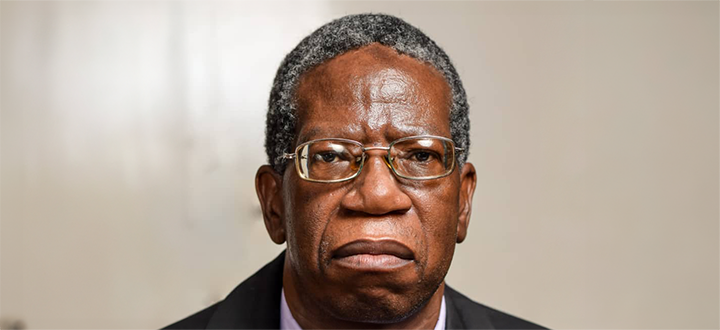Leading change
Study explores power relations and domestic violence in Mamelodi
 How do South African women understand and mediate power and control between themselves and within their relationship with their partners? This is a question that Unisa Sociology expert Dr Nokuthula Mazibuko probed as part of her research on violence against women in Mamelodi, Pretoria.
How do South African women understand and mediate power and control between themselves and within their relationship with their partners? This is a question that Unisa Sociology expert Dr Nokuthula Mazibuko probed as part of her research on violence against women in Mamelodi, Pretoria.
Interviewing women between the ages of 23 and 63 and conducting observations within the township, Mazibuko said her study aimed at unravelling the central place of power relations in the commission of domestic violence, which she describes as a “scourge in South Africa”.
“There is no question that in South Africa, violence against women is widespread. The forms of violence include slapping, tearing hair, pushing and pulling, kicking, hitting with an object, attempting to strangle, threatening, verbal abuse, sarcastic remarks in the presence of outsiders, imposing severe restrictions on freedom of movement, totally ignoring the wife in decision-making processes, and making frequent complaints against her to her parents, friends, neighbours and kin, as well as sexual violence, which includes forced sexual intercourse and other forms of sexual coercion.”
Explaining more on domestic violence, Mazibuko said it is a pattern of behaviour used to establish power and control over another person with whom an intimate relationship is or has been shared. This is done through fear and intimidation, often including the threat or use of violence. “The control motives of the violent member, in this case the husband, are identified operationally by patterns of controlling behaviour that indicate an attempt to exercise general control over the wife.”
She added that a 2009 study revealed that the rate of femicide (where a woman or girl is killed by a man because of her gender) in South Africa stood at one woman being killed by her intimate male partner every eight hours.
Exploring this concept of power—residual and active power—and how exercise or non-exercise of these forms of power structures affects intimate relationships, Mazibuko said her findings in Mamelodi revealed that the ideas of ownership, control and love among people in intimate relationships are often woven into the discourse of power relations.
“There were dominant narratives that the women discussed about their male partners, namely, control, isolation from family members and friends, constantly checking the women’s cell phones, and keeping their bank cards. These women’s experiences were strongly patterned, suggesting that the findings are likely to be valid representations of their experiences on domestic violence.”
She continued: “In this culture, a man owns his family and this sense of ownership results in control—erroneously seen as love for family. For those who subscribe to this notion of relationship, the concept of partner-abuse hardly exists—in fact; it is constructed within the gamut of discipline, love and care.”
Mazibuko said the women interviewed had experienced emotional, verbal, financial, sexual and physical violence in their intimate relationships. The majority of women also had high school education and university degrees, and all were employed in secured jobs, either as high, primary or pre-primary educators, nurses, social workers, or working in government offices. The majority of the women were married, while a few were widowed or unmarried.
She listed patriarchy, a system of male domination and female subordination in economy, society and culture, as a reason for this form of control and power. “Patriarchy is a system of government in which men rule communities through their position as heads of households, and through a system of social structures and practices in which men dominate, oppress and exploit women.”
The perception and understanding of masculinity was another contributing factor said Mazibuko. “Masculinity is a set of characteristics that our community often associate with men. And when the exercising of power by men is challenged, it can be perceived by such men as threats to their masculine identity. This inability to meet social expectations of successful manhood can trigger a crisis in male identity.”
“Therefore,” she continued, “violence against women is not seen as an expression of male powerfulness and dominance over women, but rather as being rooted in male vulnerability or powerlessness. Domestic violence on women is an expression of power by men that is otherwise denied.”
Domestic violence is also related to a women’s status; power she can attain from sources such as education, income and community roles. However, that power is often perceived negatively, said Mazibuko, adding that violence within relationships results in power imbalances between the victim and the perpetrator.
“There are estimates that indicate domestic violence occurs in as much as 60 per cent of marital relationships, particularly when there is conflict over resources and decision-making power. Challenges to the exercise of power by men can be perceived by them as threats to their masculine identity; feelings of losing a gendered power advantage and an inability to meet social expectations of successful manhood.”
Upon analysing the women’s responses, Mazibuko said it was clear that domestic violence as a social phenomenon is complex and multidimensional, just like any other social phenomena. “However, a shift needs to continuously happen in public thinking and domestic violence needs to be viewed as unacceptable behaviour as it is a gross violation of human rights.”
*By Rivonia Naidu-Hoffmeester
This article was adapted from Dr Mazibuko’s academic article which will appear online in the South African Review of Sociology Journal from 21 April 2017.
The 2017 International Women’s Day lecture and panel discussion will take place on Friday 10 March 2017. The theme for the lecture is ‘African women activisms’
The Thabo Mbeki Foundation and the University of South Africa (Unisa) have the honour of inviting you to the 2017 International Women’s Day lecture and panel discussion. The celebrated Zimbabwean author, filmmaker, playwright, poet and activist Tsitsi Dangarembga will deliver this year’s lecture. Click here for the event’s concept note for more information on the event.
Theme: African Women Activisms
Speaker: Tsitsi Dangarembga
Date: Friday 10 March 2017
Time: 18:00 – 20:30
Venue: Ormonde Conference Hall, 2 Vinton Road, Ormonde Ext 1, Johannesburg
RSVP: tmalirsvp@unisa.ac.za.

Image source: www.internationalwomensday.com
Publish date: 2017-03-08 00:00:00.0


 Unisa honours Dr OK Matsepe's enduring legacy
Unisa honours Dr OK Matsepe's enduring legacy
 Great strides towards concretising Unisa-PMC partnership
Great strides towards concretising Unisa-PMC partnership
 Mental health among men in the workplace needs more attention
Mental health among men in the workplace needs more attention
 "I owe everything to Unisa and my late supervisor's priceless mentoring"
"I owe everything to Unisa and my late supervisor's priceless mentoring"
 Majikijela - a queer scholar raising homosexuality awareness through his work
Majikijela - a queer scholar raising homosexuality awareness through his work